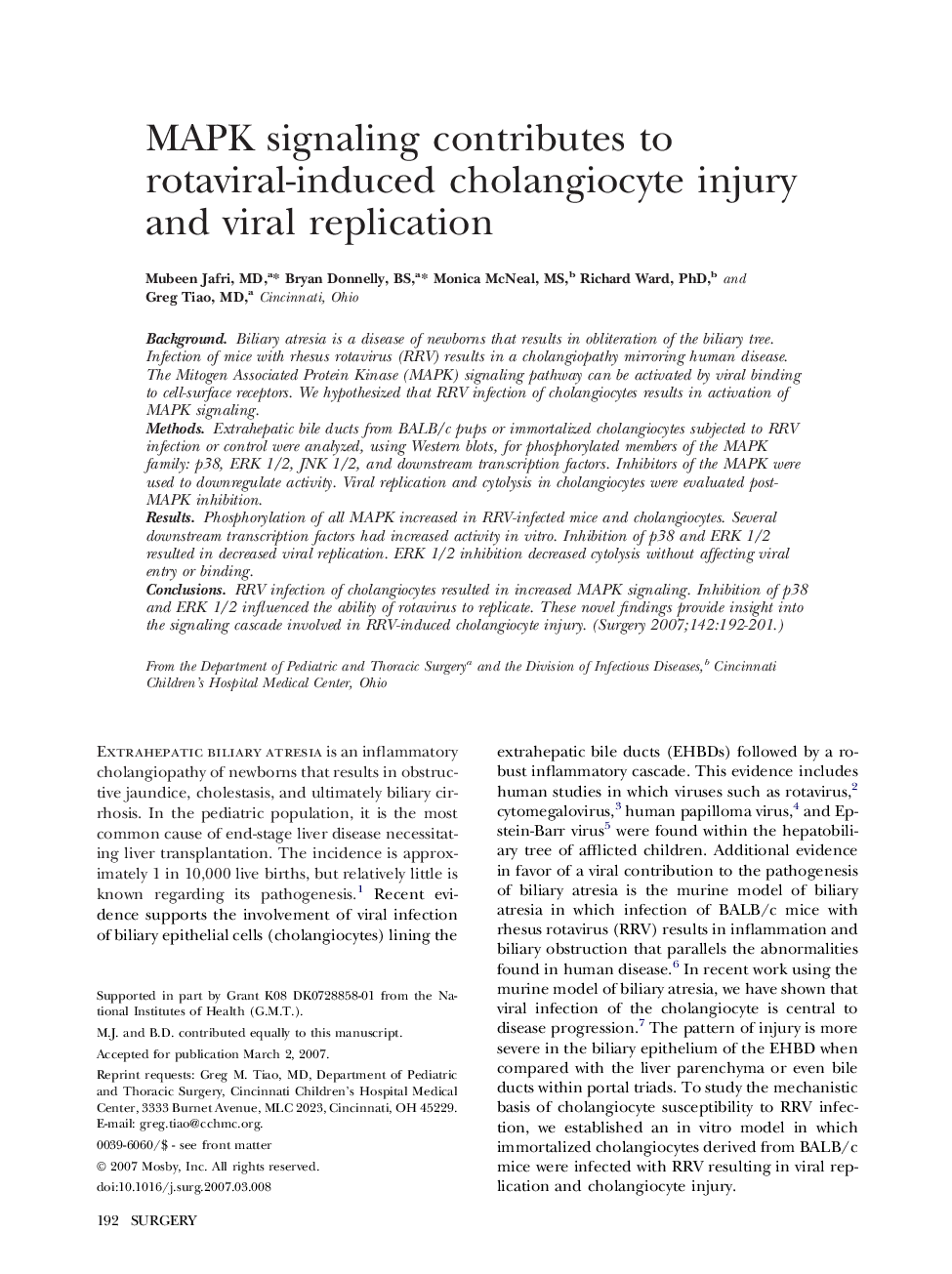| Article ID | Journal | Published Year | Pages | File Type |
|---|---|---|---|---|
| 4310330 | Surgery | 2007 | 10 Pages |
BackgroundBiliary atresia is a disease of newborns that results in obliteration of the biliary tree. Infection of mice with rhesus rotavirus (RRV) results in a cholangiopathy mirroring human disease. The Mitogen Associated Protein Kinase (MAPK) signaling pathway can be activated by viral binding to cell-surface receptors. We hypothesized that RRV infection of cholangiocytes results in activation of MAPK signaling.MethodsExtrahepatic bile ducts from BALB/c pups or immortalized cholangiocytes subjected to RRV infection or control were analyzed, using Western blots, for phosphorylated members of the MAPK family: p38, ERK 1/2, JNK 1/2, and downstream transcription factors. Inhibitors of the MAPK were used to downregulate activity. Viral replication and cytolysis in cholangiocytes were evaluated post-MAPK inhibition.ResultsPhosphorylation of all MAPK increased in RRV-infected mice and cholangiocytes. Several downstream transcription factors had increased activity in vitro. Inhibition of p38 and ERK 1/2 resulted in decreased viral replication. ERK 1/2 inhibition decreased cytolysis without affecting viral entry or binding.ConclusionsRRV infection of cholangiocytes resulted in increased MAPK signaling. Inhibition of p38 and ERK 1/2 influenced the ability of rotavirus to replicate. These novel findings provide insight into the signaling cascade involved in RRV-induced cholangiocyte injury.
